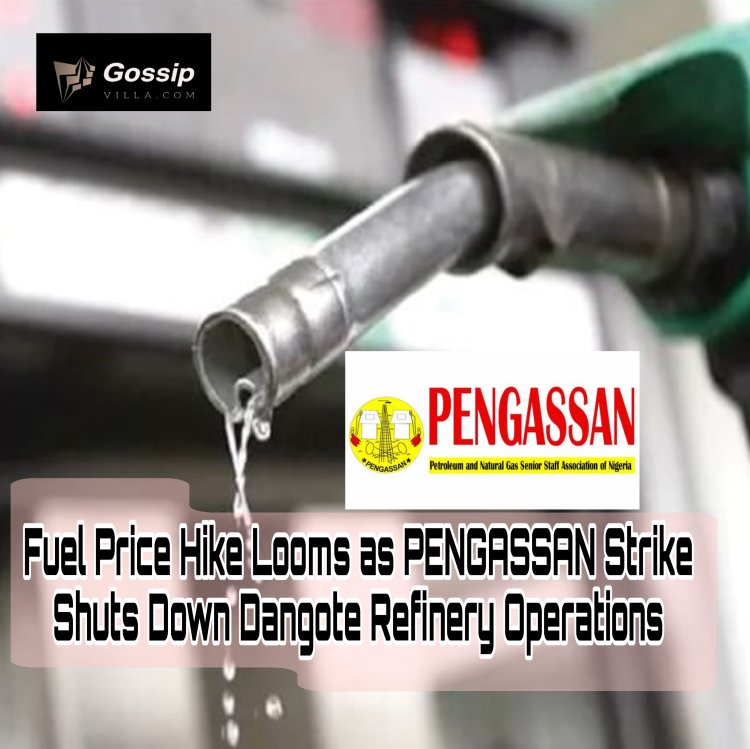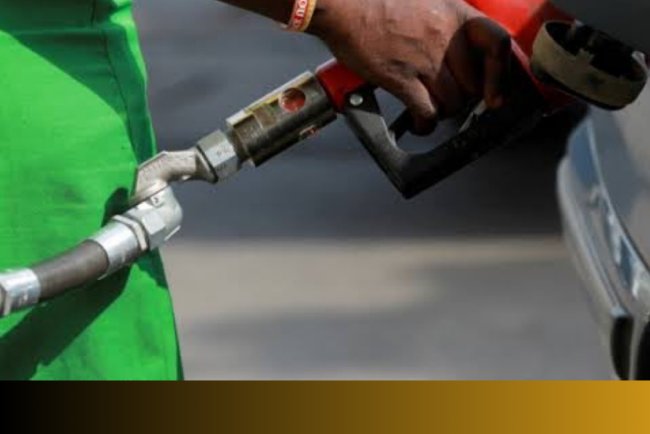Fuel Price Hike Looms as PENGASSAN Strike Shuts Down Dangote Refinery Operations
(PENGASSAN) Announces Nationwide Strike Over Dangote Refinery Dispute

Fuel Price Hike Looms as PENGASSAN Strike Shuts Down Dangote Refinery Operations
The Petroleum and Natural Gas Senior Staff Association of Nigeria (PENGASSAN) initiated a nationwide strike today, halting operations at the Dangote Refinery due to a labor dispute involving the alleged dismissal of over 800 unionized workers. The industrial action has raised widespread concerns among fuel marketers and consumers, who fear disruptions in Nigeria’s fuel supply chain could lead to significant petrol price hikes, further straining the nation’s economy. Below is a detailed breakdown of the situation, its implications, and the responses from key stakeholders.
Background of the Dispute
The strike stems from PENGASSAN’s allegations that Dangote Refinery unlawfully sacked over 800 workers for their union affiliations, replacing them with approximately 2,000 foreign employees. The union claims these dismissals violate Nigerian labor laws, accusing the refinery of anti-labor practices.
In response, PENGASSAN directed its members to suspend crude oil and natural gas supplies to the 650,000 barrels-per-day facility, effectively shutting down operations starting September 28. The union has vowed to maintain the strike until the dismissed workers are reinstated and their rights are upheld.
Economic Implications and Marketers’ Concerns
Fuel marketers, represented by the Independent Petroleum Marketers Association of Nigeria (IPMAN), have voiced alarm over the potential consequences of the strike. “A prolonged shutdown at Dangote Refinery could lead to fuel shortages and price hikes, placing an unbearable burden on consumers already grappling with economic challenges,” an IPMAN spokesperson stated. The refinery is a cornerstone of Nigeria’s push for energy self-sufficiency, reducing reliance on imported fuel. Any disruption risks undermining these gains, potentially destabilizing fuel markets and exacerbating inflation pressures across the country.

Dangote Refinery’s Response
Dangote Refinery has strongly condemned the strike, labeling it as “lawless” and an act of “sabotage” that threatens fuel availability for Nigeria’s 230 million citizens. The company insists it complies with labor regulations and disputes the union’s claims, asserting that only a small number of workers were affected during a routine reorganization. Former PENGASSAN President has countered these claims, accusing the Dangote Group of exploiting workers and highlighting broader concerns about labor rights in Nigeria’s oil sector.
Government and Union Interventions
The federal government has moved swiftly to address the crisis, summoning representatives from PENGASSAN and Dangote Refinery to an emergency truce meeting on September 29. The Minister of Labour and Employment has urged the union to suspend the strike, emphasizing the need for dialogue to resolve the impasse. Meanwhile, the Trade Union Congress (TUC) has signaled solidarity with PENGASSAN, threatening to join the strike if the sacked workers are not reinstated and if Dangote fails to issue a public apology.
Calls for Dialogue and Economic Stability
Prominent figures, including former Senator Shehu Sani, have called for both parties to engage in constructive negotiations to prevent further economic fallout. Consumer groups have echoed these concerns, warning that the strike could jeopardize Nigeria’s energy independence goals. The Dangote Refinery, Africa’s largest, has been pivotal in bolstering local refining capacity, but this dispute risks derailing those efforts.
Outlook and Potential Impact
As the strike continues, Nigerians are bracing for potential fuel price surges and supply shortages. The outcome of the ongoing negotiations will be critical in determining whether the nation can avoid a deeper energy crisis. Stakeholders remain hopeful that a swift resolution will restore operations and stabilize fuel markets. However, the standoff underscores the delicate balance between labor rights and economic stability in Nigeria’s oil industry, with far-reaching implications for consumers and the broader economy.
News Sources:
What's Your Reaction?




















